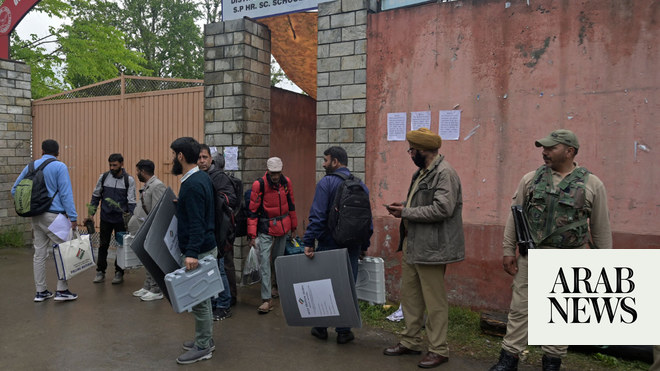
Narendra Modi is known to be a man who plays for high stakes. His decision on demonetization in 2016, which made 85 percent of Indian currency vanish into thin air, was one example.
Now, he has abrogated the article of the Indian constitution that conferred a special status on Kashmir to the applause of a vast section of people, including several opposition parties and prominent individuals who have likened it to the cutting of the Gordian knot, which others were too timid to do.
Although the Kashmiris themselves are believed to be distressed — their views cannot be known because of the prevailing censorship in the valley — Modi’s popularity can be said to now be even higher in the rest of the country than when his party won the highest ever number of seats in Parliament in May.
Internationally, too, his standing is high, with virtually every country barring Pakistan and its all-weather friend China supporting India, even on the “explosive” situation in Kashmir, to use US President Donald Trump’s word.
Although there is no question of India accepting Trump’s renewed offer of mediation on Kashmir — as New Delhi sees the issue as a bilateral one between India and Pakistan — there is little doubt that India’s relations with the US will continue to be strong, if only because Washington needs New Delhi as a counterweight to China in the Asia-Pacific region.
Any little pinpricks between India and the US over American visas for Indian information technologists will not in any way trouble a durable partnership between the world’s oldest and largest democracies.
Similarly, India’s relations with an overwhelming majority of countries are cordial and deemed mutually beneficial. Even China is seemingly willing to ensure that its border problems with India, which led to a limited war in 1962, are resolved in a mutually satisfactory manner.
The only flaw in this near-perfect scenario for India is the tense ties with Pakistan, whose roots lie in the latter’s quest for revenge for its loss of its eastern wing, which is now Bangladesh, because of India’s intervention in 1971-72. Pakistan also wants to grab Kashmir, the missing “K” in its name.
It goes without saying that Islamabad sees the tightening of New Delhi’s grip on Kashmir as a blow to its twin unfulfilled objectives. But it must be aware that India’s strong international position makes it invulnerable to threatening words and deeds.
A major reason for India’s virtually unassailable position is Pakistan’s use of terror tactics, which has made it a kind of pariah with its inclusion on the grey list of the Financial Action Task Force for failing to act against terrorism and money laundering.
New Delhi had earlier maintained that it was ready to talk with Pakistan if the latter called off its “proxy war” against India. But the cutting of the Gordian knot has changed the situation. Now, as India’s Defense Minister Rajnath Singh has said, the only talks with Pakistan will be over the future of Pakistan-administered Kashmir, which India obviously intends to be integrated with the newly constituted Union Territory of Jammu and Kashmir.
Since this will hardly be acceptable to Pakistan, the scene has become “complicated,” to use another of Trump’s words on the subject. But, no matter how “explosive” or “complicated” the situation is in one of the most beautiful parts of India, and perhaps the world, New Delhi currently has the political and military clout to fend off any challenges.
However, any serious conflict is unlikely. Given China’s investments in the Belt and Road Initiative projects in Pakistan, it will insist on the avoidance of a military confrontation. But neither China nor Pakistan will have any control over the “lone wolf” terrorists who will see in the unsettled conditions in Kashmir an opportunity to indulge in their militant operations.
Pakistan must be aware that India’s strong international position makes it invulnerable to threatening words and deeds.
Amulya Ganguli
India would have been even better placed vis-a-vis Pakistan if its economy had been on a sound footing, but the ongoing slowdown has had a dampening effect on consumer confidence and investments. Hence Modi’s call for reviving the “animal spirits” of the private sector and making India the world’s investment destination.
If the economy shows any renewed signs of life and if there is peace and stability in Kashmir following the lifting of the restrictions on telecommunications and vehicular movements, then India will have turned the corner in a critical period.
The resultant political benefits for Modi and the Bharatiya Janata Party will be enormous, much to the chagrin of the opposition parties, which are in the doldrums at present. But the realization of the two “ifs” — economic recovery and tranquility in Kashmir — is vital. In their absence, the scene will indeed be extremely complicated.












